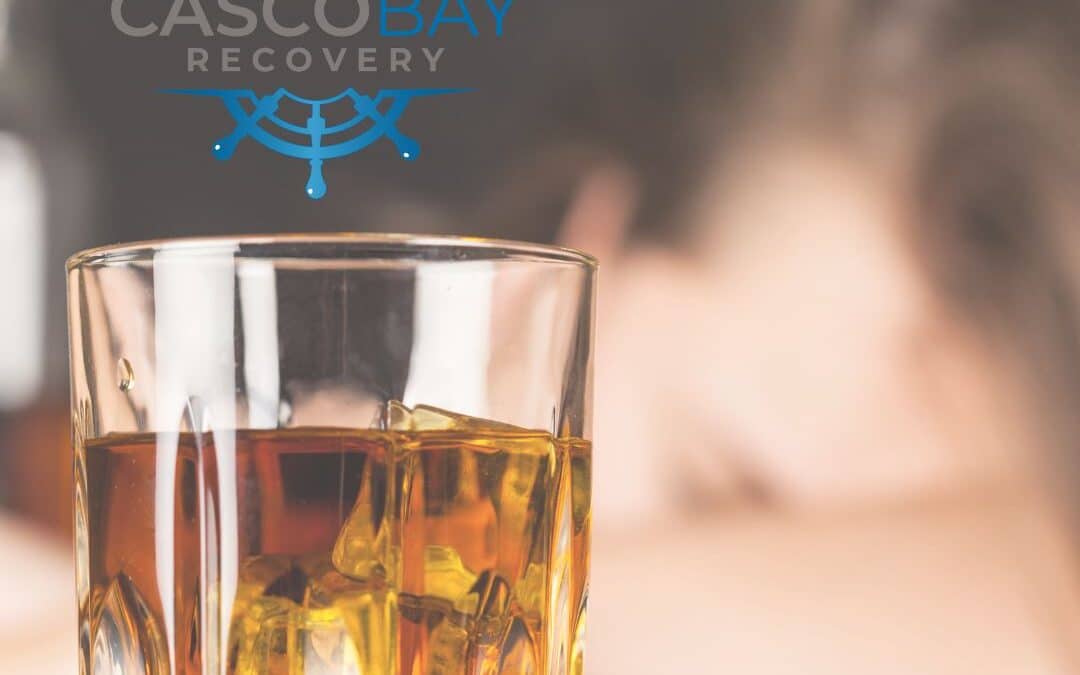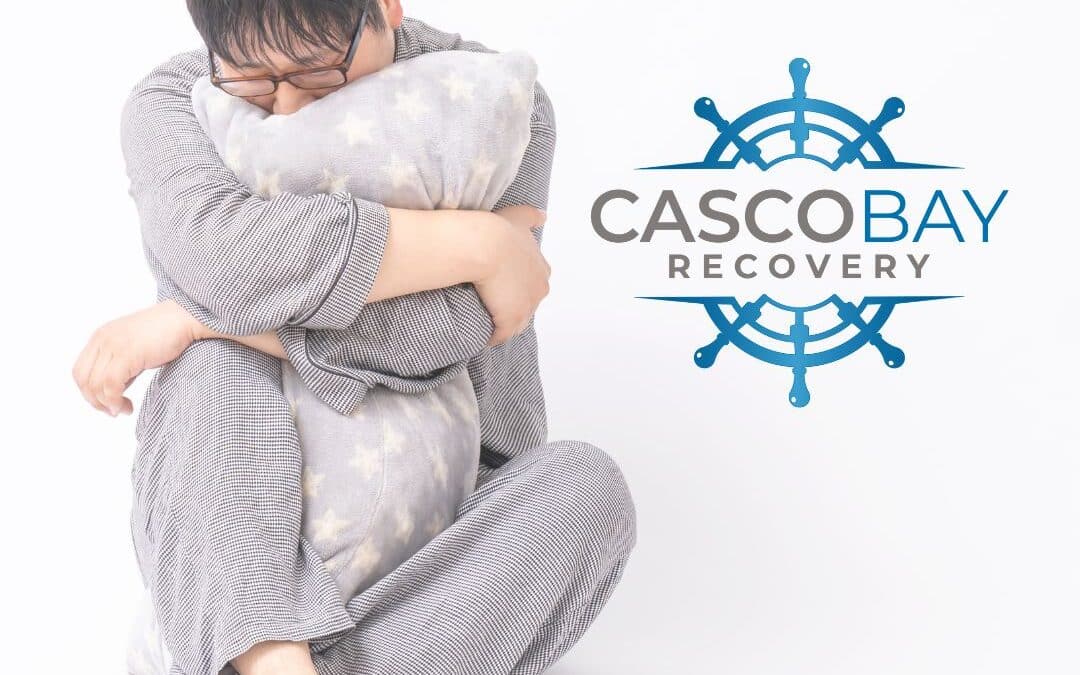When you’re dealing with drug addiction, it’s like being stuck in a never-ending battle that’s not fought on some distant battlefield but deep within yourself. This struggle isn’t something that just affects one part of your life; it touches everything. Drug addiction isn’t a problem that only a few people face; it’s a widespread issue that affects millions of lives.
In 2020, the Substance Abuse and Mental Health Services Administration (SAMHSA) estimated that around 21.6 million people aged 12 or older in the United States were dealing with substance use disorder. This isn’t just an issue that affects certain groups; it can impact anyone, no matter their age, gender, or background. It seeps into families, friendships, and communities, leaving a trail of destruction in its wake. Casco Bay Recovery in Portland, Maine works closely with patients and family members to facilitate holistic healing during the drug treatment process.
The Complex Interplay
Drug addiction in Portland, Maine isn’t just about taking a substance; it’s a complex mix of thoughts, feelings, and circumstances. For many, it starts innocently enough, perhaps to cope with stress or pain. But what seems like a solution can quickly turn into a problem.
As substances enter the picture, the brain’s chemistry goes through significant changes. Dopamine, the “feel-good” chemical in your brain, gets hijacked, leading to a never-ending search for that fleeting feeling of happiness. With time, people may find themselves trapped in a cycle where they need the drug not to get high but just to feel “normal.”
Isolation and Desperation
As addiction tightens its grip, isolation often becomes the new normal. Relationships with loved ones deteriorate, and your social circle shrinks. The drug takes over everything, including your responsibilities and well-being.
During this time, those struggling with addiction can feel an overwhelming sense of hopelessness. They might want to quit and see the harm they’re causing themselves and others, but addiction has become an all-encompassing force, making it seem impossible to break free.
Navigating Challenges During and After Drug Treatment

Recovery is a journey filled with obstacles, but knowing about these challenges can help you achieve lasting sobriety.
Withdrawal Symptoms
During treatment, withdrawal symptoms can be intense. Around 21.5 million Americans aged 12 or older needed substance use treatment in 2020, many facing withdrawal’s physical and emotional toll.
Relapse Risk
Post-treatment, relapse is a significant concern. Roughly 40-60% experience it. Relapse prevention strategies in Portland, Maine are vital for maintaining sobriety.
Cravings
Strong cravings can persist after treatment. The brain’s reward system may crave the substance, posing a daily battle.
Environmental Triggers
Familiar environments and people can trigger relapse. These triggers are common hurdles in the post-treatment phase.
Mental Health Challenges
Co-occurring mental health issues, affecting over 7 million Americans, complicate recovery. Addressing mental health is crucial. It’s important to seek a dual diagnosis treatment center in Maine.
Social Isolation
Rebuilding relationships is challenging. Isolation can persist after treatment, making social support critical for recovery.
Stigma
The stigma surrounding addiction persists. Overcoming societal judgments can be emotionally taxing.
Employment and Housing
Securing stable employment and housing can be tough post-treatment, impacting recovery prospects
Health Concerns
Long-term substance use can lead to health issues. Ongoing medical care may be necessary.
Craving Management
Managing cravings is an ongoing struggle. Learning healthy coping mechanisms is essential.
Recognizing these challenges, seeking support, and staying connected are keys to navigating the tough road to recovery. Remember that while challenges are a part of the journey, they don’t define where you’re headed.
Why Staying Sober Matters
In the journey of recovery from drug addiction, staying sober is the beacon of hope, offering a brighter future and well-being. Here are some compelling reasons to stay sober during and after treatment:
Health and Longevity
Staying sober means preserving your health. Substance abuse harms your body, causing a variety of health issues. Statistics show that substance abuse is linked to over 100,000 deaths in the United States annually. Sobriety provides a chance for healing and a longer, healthier life.
Reconnecting with Loved Ones
Maintaining sobriety mends broken relationships. Addiction often strains connections with family and friends. Staying sober rebuilds trust and fosters meaningful bonds. Strong support networks enhance recovery outcomes.
Economic Stability
Drug addiction drains finances. In the U.S., addiction costs an estimated $740 billion annually. Staying sober means reclaiming financial stability, reducing debt, and securing a more prosperous future.
Legal Consequences
Drug-related legal troubles are a common consequence of addiction. Staying sober helps avoid legal issues and maintains a clean record, enhancing employability and overall stability.
Emotional Well-Being
Substance abuse exacerbates mental health issues. Over 7 million Americans have a co-occurring substance use disorder and mental illness. Sobriety supports emotional well-being, facilitating effective mental health treatment.
Relapse Prevention
Staying sober post-treatment minimizes the risk of relapse. Approximately 40-60% of people in recovery experience relapses. Sobriety strategies learned during treatment remain vital safeguards.
Achieving Personal Goals
Sobriety unlocks potential. It enables individuals to pursue personal and professional goals with clarity and determination, fostering a sense of accomplishment and purpose.
Community Impact
Sobriety contributes to a safer and healthier community. Reduced drug abuse enhances community well-being, making it a better place for everyone.
Relapse Risks During and After Drug Treatment
Staying vigilant against relapse is crucial, as it remains a persistent threat to sustained recovery.
- High Relapse Rates – Approximately 40-60% of those in recovery experience relapse, emphasizing its prevalence.
- Withdrawal Symptoms – Physical and emotional withdrawal symptoms can be overwhelming, prompting a return to substance use for relief.
- Cravings – Intense cravings can resurface during stressful times, testing one’s resolve.
- Environmental Triggers – Familiar places and people linked to drug use can reignite the desire to use.
- Social Pressure – Peer pressure or social circles endorsing drug use can influence decisions.
- Mental Health Challenges – Untreated mental health issues can drive individuals back to substances for temporary relief.
- Overconfidence – Complacency about sobriety can lead to risky behaviors, increasing relapse risk.
- Isolation – Loneliness and lack of support may make relapse an attractive escape.
- Lack of Coping Skills – Insufficient coping mechanisms for life’s challenges can drive individuals to substances for relief.
- Overwhelming Stress – Overwhelming stressors, such as financial difficulties or relationship problems, can weaken resolve.
Recognizing these risks and proactively seeking support, whether through individual therapy in Portland, Maine, and group therapy in Portland, Maine, support groups, or a strong support network, is essential for preventing relapse and maintaining lasting recovery. Relapse doesn’t erase progress; it’s an opportunity to learn and grow stronger.
Sustaining Sobriety After Drug Treatment
Staying sober post-treatment is a journey that thrives on dedication and a mindful approach. To navigate this path successfully, it’s essential to embrace these key strategies:
Building a Strong Support Network
Forge connections with supportive friends and family members. As well as providing a profound sense of belonging and encouragement, social support can significantly reduce relapse risks.
Continued Therapy and Counseling
The journey doesn’t end with treatment; it continues with ongoing therapy or counseling. These sessions help delve deeper into underlying issues, equip you with effective coping mechanisms, and provide valuable guidance.
Engaging in Support Groups
Consider joining support groups like AA or NA, where you can share experiences, learn from others, and gain insights into maintaining sobriety in a welcoming and understanding community.
Nurturing a Healthy Lifestyle
Prioritize your well-being by embracing a healthy lifestyle. Proper nutrition, regular exercise, and adequate sleep are the cornerstones of physical and mental health, providing a solid foundation for lasting sobriety.
Mastering Stress Management
Learn stress management techniques, such as mindfulness or meditation, to effectively navigate life’s challenges without resorting to substance use.
Avoiding Triggers
Identify and steer clear of triggers that could tempt a return to old habits. This may involve avoiding specific places, situations, or individuals associated with your past substance use.
Working these strategies into your daily life empowers you to stay on the path of recovery and create a brighter future. Remember that sobriety is a daily commitment, and each step forward is a significant achievement in your journey to lasting recovery. Be compassionate toward yourself, as setbacks can be opportunities for growth and resilience-building.
Find Support in Your Recovery with Casco Bay Recovery

Our dedicated team understands the complexities of addiction and recovery, and we’re committed to providing you with personalized support rooted in empathy and evidence-based practices. Our services are diverse, ranging from therapeutic counseling in Portland, Maine to supportive group sessions, all designed to meet your unique needs.
When you become part of our supportive community, you’ll discover a safe space where you can openly share your experiences, learn from others, and receive encouragement every step of the way. Remember, sobriety isn’t just about breaking free from drugs; it’s a journey to reclaim your life, pursue your dreams, and create a brighter, substance-free future.
At Casco Bay Recovery, we’re your partners on this transformative path. Take that crucial first step towards lasting recovery with us, and together, we can overcome the challenges of addiction and build a future brimming with hope and opportunity. Reach out to us today, and let’s embark on this journey together.








